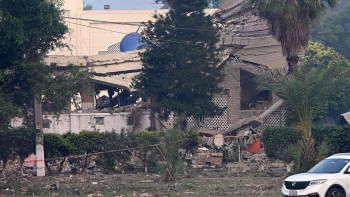Street children demand rehabilitation
Laying stress on their basic rights, street children yesterday demanded their rehabilitation to make lives better.
"Street children are not born in the street, they are born in some family," said Salma, a 13-year-old girl who used to live on the street before being rehabilitated by an NGO.
Addressing an opinion sharing meeting at the capital's Kamalapur, she said the street children must also enjoy the five basic rights -- food, clothing, home, education, and healthcare.
Salma is now taking education under the rehabilitation programme of Aparajeyo Bangladesh.
Describing her condition, she demanded the same facilities for all children who came to the streets for different reasons like poverty or parents' separation, death and carelessness.
The women and children affairs ministry organised the discussion as part of an initiative to rehabilitate street children.
According to the estimates of NGOs, the number of street children is 11 lakh in the country, including 4 lakh in the capital.
"I came to the street at the age of eight, as a woman brought me near Babu Bazar Bridge luring me to give food. Since then I have not found my family as I could not remember the address and the name of any of my family members," said Sayeed Hossain, 14, now a student of class VIII.
The government has taken an initiative to rehabilitate street children of two wards of the two Dhaka city corporations on a pilot basis, said Dr Abul Hossain, director of Street Children Rehabilitation Programme.
He said they had selected ward-26 of Dhaka North City Corporation (Karwan Bazar, Tejkunipara, and Railway Colony) and ward-8 of Dhaka South City Corporation (Bangladesh Bank Colony, Sonali Bank Colony, RK Mission Road, Gopibagh, Kamlapur, Motijheel, and Bangladesh Railway Barrack).
According to a study of the government, conducted in Kamalapur area, 74 percent of street children want to be rehabilitated, but the rest do not, said Abul.
Of them, 70 percent take drugs, 77.14 percent do not have access to any sanitation facility, and 83 percent manage their own food, he said.
State Minister for Women and Children Affairs Meher Afroze Chumki said rehabilitation through shelter homes was not a solution; families must be protected as well.
She said the government would have to find the reasons why families did not want to keep their children with them or why they want to marry their children off at an early age.
Nasima Begum, secretary to the women and children affairs ministry, who chaired the meeting, said it was not possible for the government alone to reduce the number of street children.
Government, non-government organisations, and all others have to chip in, she added.
Among others, Director General of Department of Social Services Gazi Mohammad Nurul Kabir, Deputy Inspector General (Railway Range) of Bangladesh Police SM Ruhul Amin, and Additional Director General of Department of Narcotics Control Md Amir Hossain spoke.

 For all latest news, follow The Daily Star's Google News channel.
For all latest news, follow The Daily Star's Google News channel. 



Comments